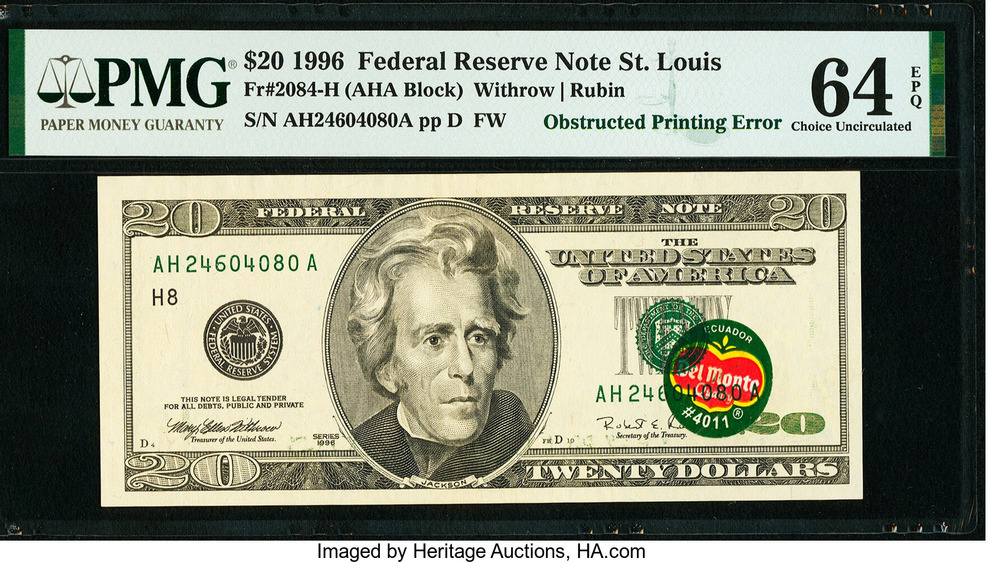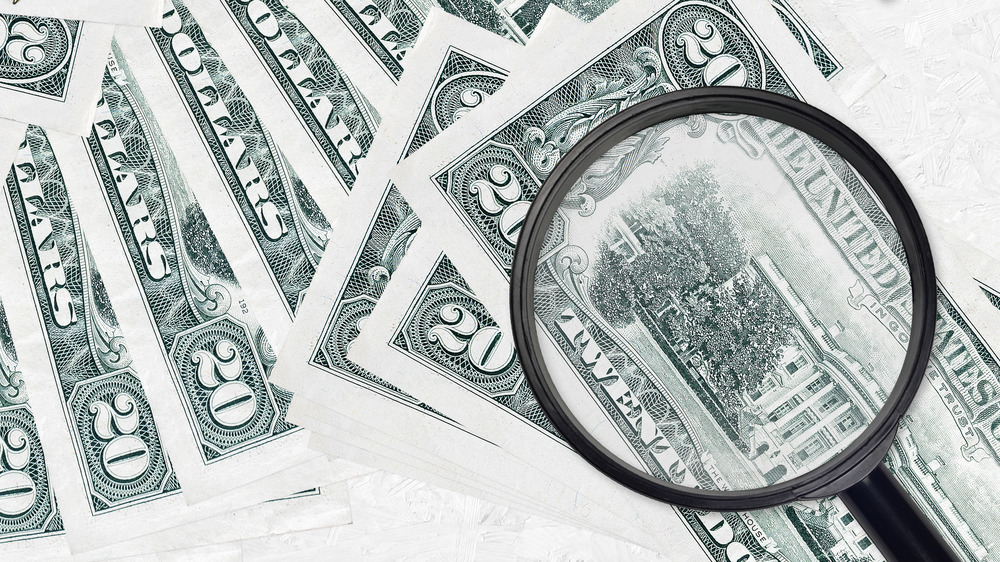Why A Misplaced Banana Sticker Makes This $20 Bill Worth A Fortune
When was the last time you had a $20 bill that was worth more than $20? What if we told you there's a $20 bill out there that's worth more than $75,000 just because it has a banana sticker on it? Would you start putting banana stickers on all of your money? Not so fast. There's more to the story than just having a random sticker on a bill.
Turns out that back in 2004, a guy in Ohio got some money out of an ATM and noticed that there was a sticker on the front of it (the aforementioned banana sticker). Nothing too crazy, right? However, this particular banana sticker — Del Monte brand, if you were wondering — just so happened to be placed underneath the serial numbers on the $20 bill. It was then that he knew he had something pretty cool, and a piece of paper that would probably be worth some big coin (pun intended) to the right collectors (via Food & Wine).
How a sticker made a $20 bill so valuable
So this guy lists his newfound treasure on eBay, and lo and behold, someone buys it off of him for $10,000. If that wasn't crazy enough, a couple years later, the collector who purchased the $20 bill for $10,000 sells the "Del Monte Note" for $25,300, according to Food & Wine. You see where this is going?
Now, Heritage Auctions in Dallas is auctioning off the pristine $20 bill that's defaced with a Del Monte banana sticker. The estimate was $25,000 to $50,000. The current bid is $105,000, with one day remaining on the auction (via Heritage Auctions). But why is this $20 bill so valuable?
The U.S. Treasury takes money printing very seriously. It is rare to see a mistake on currency. However, it does happen every once in a while, and can include things like blank sides, double impressions, and mismatched serial numbers (via PaperMoneyGuide). It's on these occasions that currency collectors seize the moment and empty their pocketbooks for the chance to own a Treasury mishap. The next owner of the Del Monte Note is yet to be revealed, but we'll be watching to see how high they're willing to bid.

